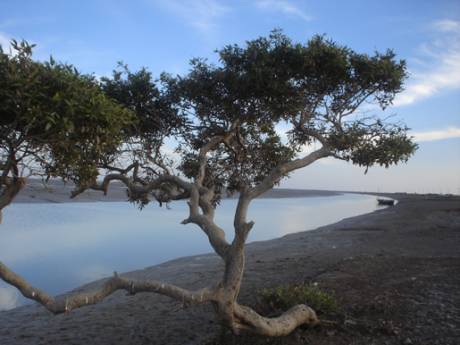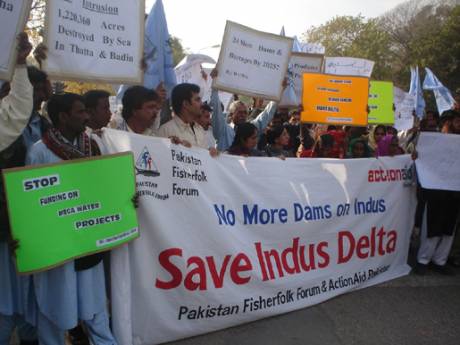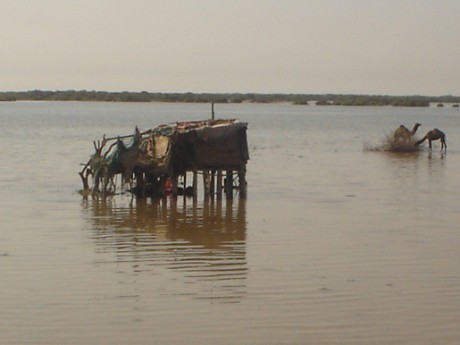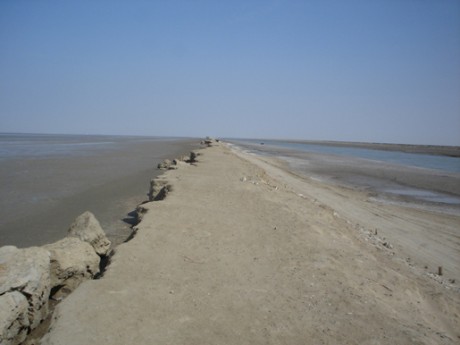A bird's eye view of the vineyard
 Alternative Copy of thesaker.is site is available Thu May 25, 2023 14:38 | Ice-Saker-V6bKu3nz Alternative Copy of thesaker.is site is available Thu May 25, 2023 14:38 | Ice-Saker-V6bKu3nz
Alternative site: https://thesaker.si/saker-a... Site was created using the downloads provided Regards Herb
 The Saker blog is now frozen Tue Feb 28, 2023 23:55 | The Saker The Saker blog is now frozen Tue Feb 28, 2023 23:55 | The Saker
Dear friends As I have previously announced, we are now “freezing” the blog. We are also making archives of the blog available for free download in various formats (see below).
 What do you make of the Russia and China Partnership? Tue Feb 28, 2023 16:26 | The Saker What do you make of the Russia and China Partnership? Tue Feb 28, 2023 16:26 | The Saker
by Mr. Allen for the Saker blog Over the last few years, we hear leaders from both Russia and China pronouncing that they have formed a relationship where there are
 Moveable Feast Cafe 2023/02/27 ? Open Thread Mon Feb 27, 2023 19:00 | cafe-uploader Moveable Feast Cafe 2023/02/27 ? Open Thread Mon Feb 27, 2023 19:00 | cafe-uploader
2023/02/27 19:00:02Welcome to the ‘Moveable Feast Cafe’. The ‘Moveable Feast’ is an open thread where readers can post wide ranging observations, articles, rants, off topic and have animate discussions of
 The stage is set for Hybrid World War III Mon Feb 27, 2023 15:50 | The Saker The stage is set for Hybrid World War III Mon Feb 27, 2023 15:50 | The Saker
Pepe Escobar for the Saker blog A powerful feeling rhythms your skin and drums up your soul as you?re immersed in a long walk under persistent snow flurries, pinpointed by The Saker >>
Interested in maladministration. Estd. 2005
 RTEs Sarah McInerney ? Fianna Fail supporter? Anthony RTEs Sarah McInerney ? Fianna Fail supporter? Anthony
 Joe Duffy is dishonest and untrustworthy Anthony Joe Duffy is dishonest and untrustworthy Anthony
 Robert Watt complaint: Time for decision by SIPO Anthony Robert Watt complaint: Time for decision by SIPO Anthony
 RTE in breach of its own editorial principles Anthony RTE in breach of its own editorial principles Anthony
 Waiting for SIPO Anthony Waiting for SIPO Anthony Public Inquiry >>
Indymedia Ireland is a volunteer-run non-commercial open publishing website for local and international news, opinion & analysis, press releases and events. Its main objective is to enable the public to participate in reporting and analysis of the news and other important events and aspects of our daily lives and thereby give a voice to people.
 Julian Assange is finally free ! Tue Jun 25, 2024 21:11 | indy Julian Assange is finally free ! Tue Jun 25, 2024 21:11 | indy
 Stand With Palestine: Workplace Day of Action on Naksa Day Thu May 30, 2024 21:55 | indy Stand With Palestine: Workplace Day of Action on Naksa Day Thu May 30, 2024 21:55 | indy
 It is Chemtrails Month and Time to Visit this Topic Thu May 30, 2024 00:01 | indy It is Chemtrails Month and Time to Visit this Topic Thu May 30, 2024 00:01 | indy
 Hamburg 14.05. "Rote" Flora Reoccupied By Internationalists Wed May 15, 2024 15:49 | Internationalist left Hamburg 14.05. "Rote" Flora Reoccupied By Internationalists Wed May 15, 2024 15:49 | Internationalist left
 Eddie Hobbs Breaks the Silence Exposing the Hidden Agenda Behind the WHO Treaty Sat May 11, 2024 22:41 | indy Eddie Hobbs Breaks the Silence Exposing the Hidden Agenda Behind the WHO Treaty Sat May 11, 2024 22:41 | indy Human Rights in Ireland >>
 Judges Told to Avoid Saying ?Asylum Seekers? and ?Immigrants? Fri Jul 26, 2024 17:00 | Toby Young Judges Told to Avoid Saying ?Asylum Seekers? and ?Immigrants? Fri Jul 26, 2024 17:00 | Toby Young
A new edition of the Equal Treatment Bench Book instructs judges to avoid terms such as 'asylum seekers', 'immigrant' and 'gays', which it says can be 'dehumanising'.
The post Judges Told to Avoid Saying ?Asylum Seekers? and ?Immigrants? appeared first on The Daily Sceptic.
 The Intersectional Feminist Rewriting the National Curriculum Fri Jul 26, 2024 15:00 | Toby Young The Intersectional Feminist Rewriting the National Curriculum Fri Jul 26, 2024 15:00 | Toby Young
Labour has appointed Becky Francis, an intersectional feminist, to rewrite the national curriculum, which it will then force all schools to teach. Prepare for even more woke claptrap to be shoehorned into the classroom.
The post The Intersectional Feminist Rewriting the National Curriculum appeared first on The Daily Sceptic.
 Government Has Just Declared War on Free Speech Fri Jul 26, 2024 13:03 | Toby Young Government Has Just Declared War on Free Speech Fri Jul 26, 2024 13:03 | Toby Young
The Government has just announced it intends to block the Higher Education (Freedom of Speech) Act, effectively declaring war on free speech. It's time to join the Free Speech Union and fight back.
The post Government Has Just Declared War on Free Speech appeared first on The Daily Sceptic.
 I Wrote an Article for Forbes Defending J.D. Vance From Accusations of ?Climate Denialism?. Forty Ei... Fri Jul 26, 2024 11:00 | Tilak Doshi I Wrote an Article for Forbes Defending J.D. Vance From Accusations of ?Climate Denialism?. Forty Ei... Fri Jul 26, 2024 11:00 | Tilak Doshi
On July 18th, Dr Tilak Doshi wrote an article for Forbes defending J.D. Vance from accusations of 'climate denialism'. 48 hours later, Forbes un-published the article. Read the article on the Daily Sceptic.
The post I Wrote an Article for Forbes Defending J.D. Vance From Accusations of ?Climate Denialism?. Forty Eight Hours Later, Forbes Un-Published the Article and Sacked Me as a Contributor appeared first on The Daily Sceptic.
 Come and See Nick Dixon and me Recording the Weekly Sceptic at the Hippodrome on Monday Fri Jul 26, 2024 09:00 | Toby Young Come and See Nick Dixon and me Recording the Weekly Sceptic at the Hippodrome on Monday Fri Jul 26, 2024 09:00 | Toby Young
Tickets are still available to a live recording of the Weekly Sceptic, Britain's only podcast to break into the top five of Apple's podcast chart. It?s at Lola's, the downstairs bar of the Hippodrome on Monday July 29th.
The post Come and See Nick Dixon and me Recording the Weekly Sceptic at the Hippodrome on Monday appeared first on The Daily Sceptic. Lockdown Skeptics >>
|
Degradation in Indus delta
 international |
environment |
opinion/analysis international |
environment |
opinion/analysis
 Sunday October 01, 2006 19:57 Sunday October 01, 2006 19:57 by Qasim Rajpar by Qasim Rajpar

The Indus Delta faces major degradation threats that could well result in catastrophe. The major cause of destruction of the Delta is the reduction in the flow of fresh water from Indus River. As the delta dries up and the mangrove forests decline, the sea is slowly sweeping in. The Delta is now said to be only 10 percent of its original area.
 Mangroves in indus delta Thatta, Pakistan: The Indus River is Pakistan’s lifeline and greatest natural asset of Pakistan. 17 major creeks and innumerable minor creeks, mudflats and mangrove forests characterize the Delta, which covers an area of about 600,000 hectares. Currently, the Indus Delta faces major degradation threats that could well result in catastrophe. The major cause of destruction of the Delta is the reduction in the flow of fresh water from Indus River. As the delta dries up and the mangrove forests decline, the sea is slowly sweeping in. The Delta is now said to be only 10 percent of its original area.
According to a report of forest department of Sindh, Indus Delta mangroves occupied approximately 345,000 hectares along the entire Sindh coast. However, recent estimates show that their area has shrunk to only 160,000 to 205,000 hectares.
Former secretary irrigation & known water expert of Pakistan Idress Rajput told that, the damage to the region started way back in 1890s when the Punjab irrigation system was developed. The quantity of freshwater reduced considerably downstream Kotri, especially in Indus Delta after the construction of Sukkur Barrage in 1932. Similarly, the construction of Kotri and Guddu barrages in 1955 and 1962, respectively, further reduced the Indus flow downstream Kotri. Moreover, other barrages, dams and link canals also badly affected the region.
The estimated freshwater flow in Indus Delta was about 150 million-acre feet (MAF) in the past. Indus had also been carrying with it some 400 million tons of silt. However, over the last 60 years freshwater flow has reduced to less than 10 MAF. He added.
Consequences of natural resource degradation are evident everywhere downstream Kotri Barrage especially in the deltaic region. Millions of acres of land degraded or completely submerged in water. A large number of people of the area who were once well off because of the four main livelihood resources - agriculture, livestock, fisheries and sea route trade - have migrated to urban areas of Thatta, Badin, Karachi and other districts of Sindh. And those who still destined living in the area have been experiencing poverty and deprivation. Severe shortage of drinking water also invited water borne diseases including diarrhea and gastroenteritis in the region.
As a result of reduction in Indus River flows, besides seawater intrusion, ground water aquifers of the region have also degraded as the seawater, while facing no resistance from the sweet water progresses to dilute the ground water of both the agriculture belts as well as the river bed downstream Kotri Barrage.
Rajab Memon, a former vice-chancellor of the Agriculture University Tando Jam expressed concern over the degradation of the Indus delta, and pointed out that the number of creeks in Sindh dwindled over the years. As a result of water shortage, he said, only 13 out of 27 creeks were left were there at present. He said that up to 1.4 million hectares of land had lost to the sea intrusion.
Different studies assessed the need of 27 to 35 MAF water downstream Kotri Barrage to ensure the sustainability of ecology and livelihood resources in the deltaic region. He said.
Seventy year old fishermen Ahmed Ali of Keti Bunder told that the people do not have access to drinking water. The families either living at the far flung islands but those living near seashore buy water through private water tankers to quench their thirst. The people from the richest deltaic region who had more water in the past are facing acute water shortage now. We have no basic facilities of education and health.
The delta used to grow in size when Indus was a mighty river. Today the sea has eroded and taken away not less than 25 miles of sindh coast. It is cutting down the coast, destroying mangroves, and flooding more and more lands on the coast converting garden areas into marshes. The dry land that we treated in youth has today come under seawater, He added.
"The sea water is persistently advancing into the Indus river because of immense lack of flow from the upstream to downstream river," Sardar Nadir akmal laghari, the Sindh Province irrigation minister told this reporter.
"The construction of barrages during the British rule disrupted the water flow of the Indus to a great extent, followed by more barrages afterwards," he added.
The British, whose rule ended in the Indian subcontinent in 1947, constructed the first barrage on the Indus River in the 1930 near Sukkur, about 550 km east of the coastal city of Karachi. The barrage having proved a success, the British were prompted to erect another further downstream near Kotri, about 170 km east of Karachi.
"In rivers with a long duration of high flows, fresh water is able to prevent salt water from intruding into the channel. If the volume of fresh water is large enough, fresh water can push salt water away from the river mouth," Tahir Qureshi, director of coastal ecology projects at the International Union for the Conservation of Nature (IUCN), told this scribe.
The mangrove provide food and shelter during larval stage of their life cycle for some 80% of the commercial species caught in Pakistan’s' water. Of greatest importance is the prawn and shrimps of which about 25,000 tones are caught annually. They make 68% of the value of Pakistan’s' nearly US dollars 100 million fish export income. Although not a significant timber resource, the mangroves are used by the coastal villagers for fuel wood and fodder, he added.
Major ecological changes took place as a result of the sea moving into the delta channels. With the disappearance of the fresh river water, agriculture in the coastal belt is no longer possible. Freshwater for drinking purposes become difficult to acquire. This affects both human and animal life, he said.
In 1991 water accord, 10-million acres feet (maf) water was set for the Indus delta instead IUCN suggested 35 maf, but even the promised 10 maf water was not released into delta for the last 10 years. "The Indus delta run dry almost 11-1/2 months down stream Kotri, leave alone release of 10 maf water," says engineer Nazeer Memon - a water and environmental expert. "This situation has resulted in lots of delegation and havoc in the region, while affecting millions of people," he told.
The need for certain minimum escapage to sea below Kotri the last Barrage on River Indus was recognized in Para-7 of the 1991 Water Accord.
All the political parties in Sindh have launched a protest against the destruction of Indus delta. These political parties allege that WAPDA have always violated agreements between the provinces and never acknowledged the inherent, human, constitutional and economic rights of the federating units, they demanding that according to water accord 1991, 10 MAF water must be released to down stream kotri.
Wapda claims that annually 35 MAF water is going to downstream kotri, which is wastage. But the water experts from sindh not agreed the point of view of WAPDA.
Simi kamal a geographer and member steering committee Pakistan water partnership said that environmental degradation of water resources has reached alarming levels, yet some people continue to hold uninformed views such as belief that every drop of water that goes to the sea is wasted. In fact, the mix of sweet and sea water maintains a very critical balance in the coastal line. If that balance is destroyed, then entire water system is affected. Pakistan depends on a single river system we can not afford any more chances with the water/sediment/salt balance of the Indus Basin.
qasimrajpar@gmail.com

People protest against the mega water projects

Sea intrusion in thatta Sindh

Sea intrusion in Badin Sindh
|
 international |
environment |
opinion/analysis
international |
environment |
opinion/analysis
 Sunday October 01, 2006 19:57
Sunday October 01, 2006 19:57 by Qasim Rajpar
by Qasim Rajpar



























 printable version
printable version

 Digg this
Digg this del.icio.us
del.icio.us Furl
Furl Reddit
Reddit Technorati
Technorati Facebook
Facebook Gab
Gab Twitter
Twitter